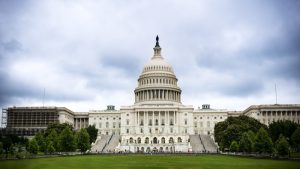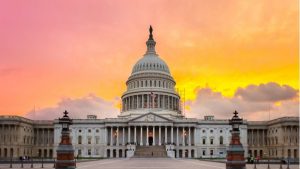A bipartisan group of senators released the framework for two separate COVID relief bills Dec. 14, the smaller of which includes $160 billion for state, local, and tribal governments along with a distribution formula for states.
A bipartisan Senate bill introduced Oct. 21 would make clear the authority of state governments to deploy their National Guard resources to help state and local governments improve their cybersecurity infrastructure and services.
Reps. Jim Langevin, D-R.I., and Doris Matsui, D-Calif., introduced a bill Oct. 16 to improve cybersecurity at K-12 schools. The Enhancing K-12 Cybersecurity Act would work to promote more access to security information, better track attack trends, and increase the number of cybersecurity experts in schools.
A new study shows that the transition to 5G wireless services will create an additional 4.6 million jobs in the United States by 2034 – and that the move to the latest generation of wireless technology has created over 100,000 jobs already since last year.
The Senate Committee on Commerce, Science, and Transportation advanced key IT legislation, as well as a Federal Communications Commission (FCC) nomination, out of today’s business meeting.
New bicameral legislation was introduced aimed at stopping government use of facial recognition and other biometric technology.
The 2021 National Defense Authorization Act (NDAA) that cleared the Senate Armed Services Committee last week on a bipartisan vote of 25-2 includes the Spectrum Modernization Act, which would direct the National Telecommunications and Information Administration (NTIA) to evaluate a range of IT improvements that would improve Federal government spectrum management.
Reps. Xochitl Torres Small, D-N.M., and Dan Newhouse, R-Wash., and Sens. Martha McSally, R-Ariz., Doug Jones, D-Ala., introduced legislation in both chambers of Congress June 11 to invest $50 million in rural telehealth initiatives amid the COVID-19 coronavirus pandemic.
Rep. Tim Ryan, D-Ohio, believes that the Federal government needs to help state and local governments figure out how to bridge the digital divide as the COVID-19 pandemic demonstrates a need to expand broadband to areas that don’t have it and to provide better services.
The latest COVID-19 relief legislation being prepared by House Democrats – the HEROES Act – proposes $90 billion in funding for the Department of Education to help K-12 and colleges adjust to distance learning.











